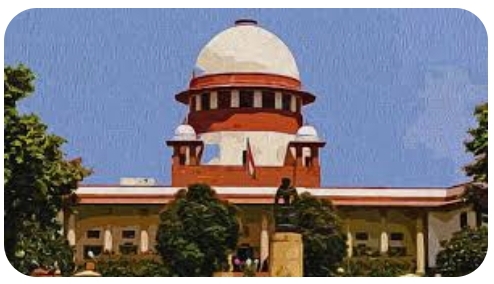New Delhi — The Supreme Court of India on Tuesday refused to examine a petition challenging directives by the Uttar Pradesh and Uttarakhand governments mandating eateries along the Kanwar Yatra route to display QR codes revealing owner details. Critics have condemned the move as a veiled attempt at religious profiling, disproportionately targeting Muslim-owned establishments, reported the Livelaw.
A bench comprising Justices M.M. Sundresh and N.K. Singh disposed of the interlocutory applications, observing, “We are told that today is the last day of the Yatra. In any case, it is likely to come to an end in the near future.”
While disposing of the case, the Court limited its order to require all hotel owners to comply with statutory obligations by displaying their licenses and registration certificates. “We make it clear that we are not going into the other issues argued. The application is closed,” the bench stated.
The petition, filed by Delhi University professor Apoorvanand and activist Aakar Patel, had sought a stay on all directives that mandate or facilitate the disclosure of food vendors’ ownership and employee identity. The plea argued that such directives violate the Supreme Court’s interim order from July 22, 2024, which stated that sellers cannot be forced to reveal their identities and are only required to specify the type of food served.
Senior Advocate Dr. Abhishek Manu Singhvi, representing the petitioners, criticized the QR code directive, questioning, “How does the surname of the owner ensure good service? The only intent is to cause religious profiling.”
He termed the move as unconstitutional, discriminatory, and a direct violation of the right to trade under Article 19(1)(g), adding that such identity disclosures could incite violence and ostracism. Citing media reports of attacks on shops, Singhvi warned that “the seeds of divisiveness” had already taken root.
Justice Sundresh acknowledged the sensitivities around food preferences during religious pilgrimages, stating, “There are some who will not even touch certain foods.” He emphasized that consumers had the right to know if an establishment that previously served non-vegetarian food had temporarily switched to vegetarian during the Yatra.
Senior Advocate Huzefa Ahmadi, also appearing for the petitioners, countered this logic, arguing that during the Yatra, all eateries were already required to serve only vegetarian food. He warned that disclosing names through QR codes would indirectly expose religious identities, leading to exclusion and “untouchability through the backdoor.”
“If a business is called ‘Bombay Mart’ and now must be labeled ‘Bombay Mart Huzefa’, the religious identity becomes obvious,” Ahmadi noted.
Justice Sundresh responded, “Marx has said religion is the opium of the masses,” and maintained the Court’s stance of balancing consumer rights with protection against religious discrimination.
Senior Advocate Mukul Rohatgi, representing the Uttar Pradesh government, defended the directives, claiming they were in accordance with the Food Safety and Standards Authority of India (FSSAI) regulations. He asserted that the 2024 interim order was passed without hearing the state and under different circumstances, citing past incidents where kanwariyas vandalized eateries over food misrepresentation.
Rohatgi added, “These regulations are framed under central law. We are only following it.” He questioned the petitioners’ objection, asking, “Why are you scared of showing your name?”
Deputy Advocate General Jatinder Kumar Sethi, appearing for Uttarakhand, supported the move. When one counsel attempted to raise the issue of Muslim-owned dhabas with names like “Shiva Dhaba,” Justice Sundresh cut in sharply, “Please, don’t embarrass us like this.”
After the Court dictated its order, Ahmadi requested a specific clarification that names and QR codes need not be disclosed. Justice Sundresh firmly replied, “We have said that we are not going into it. If you want to challenge it, go before the High Court.”
The Uttar Pradesh government had mandated that all eateries display QR-code-enabled stickers linked to the Food Safety CONNECT App, calling it a digital reform aimed at enhancing hygiene and transparency for the four crore Kanwar Yatra pilgrims.
However, critics argue that the order, disguised as a regulatory reform, is a tool for religious profiling and discrimination, violating individual privacy and constitutional rights.




